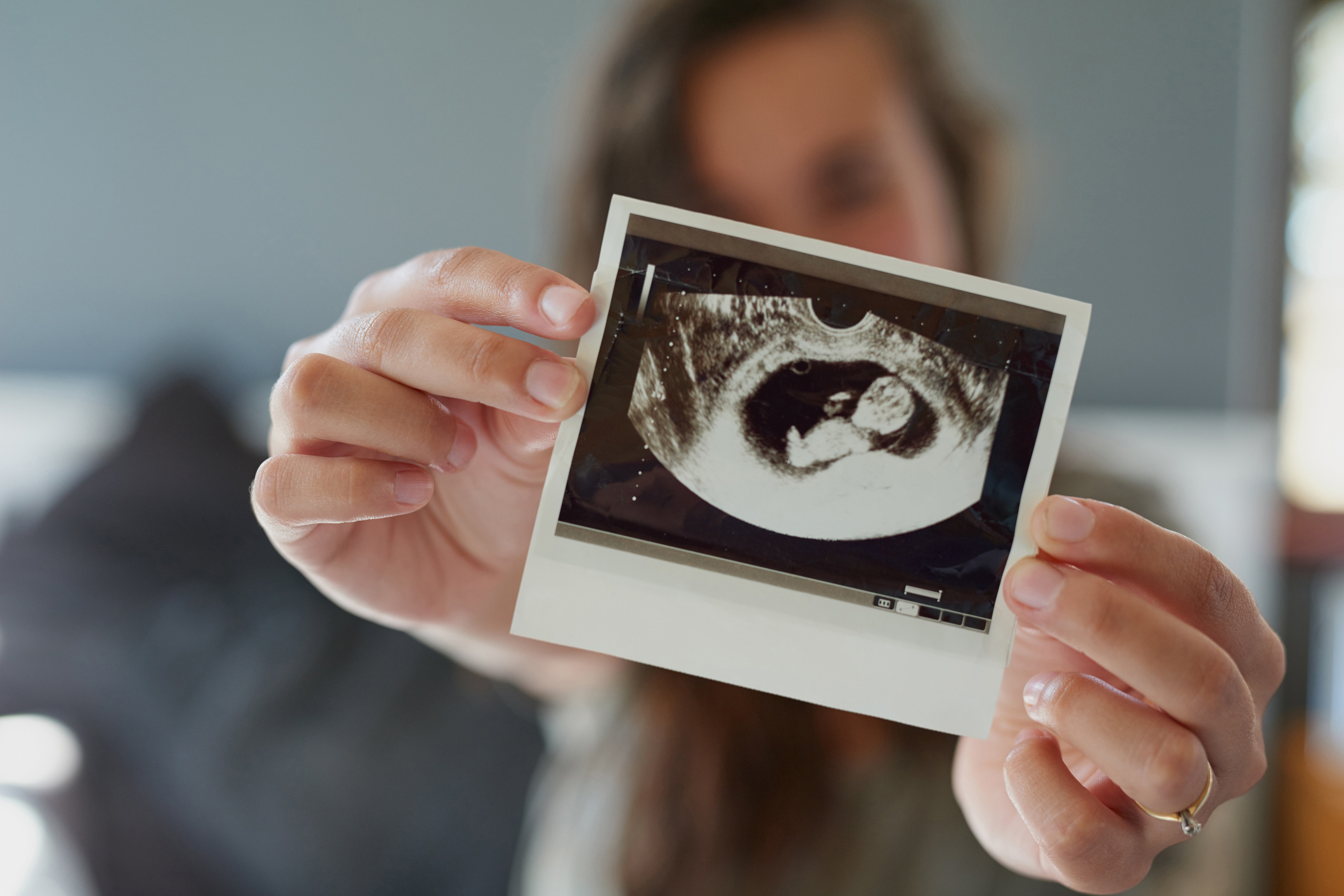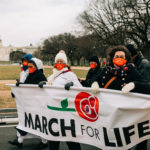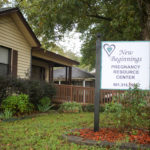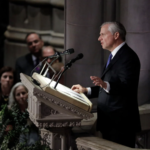
WASHINGTON (BP) — The U.S. Supreme Court delivered a key free-speech victory for pro-life pregnancy centers today (June 26) by a 5-4 vote.
 The high court reversed a lower court decision regarding a California law that, in part, essentially requires pregnancy care centers to promote abortion services. The justices ruled the pregnancy centers that challenged the measure would likely succeed in their assertion it violates the First Amendment of the U.S. Constitution and returned the case to a federal court for reconsideration in light of their opinion.
The high court reversed a lower court decision regarding a California law that, in part, essentially requires pregnancy care centers to promote abortion services. The justices ruled the pregnancy centers that challenged the measure would likely succeed in their assertion it violates the First Amendment of the U.S. Constitution and returned the case to a federal court for reconsideration in light of their opinion.
The two-part law in question — California’s 2015 Reproductive FACT Act — requires licensed pregnancy centers to post a notice for or otherwise inform clients in writing of the state’s free or low-cost access to abortion and other family planning services. The law also mandates unlicensed centers to provide a notice they are not licensed medically and do not have a licensed medical professional.
Free-speech and pro-life advocates applauded the high court’s decision.
“The court affirmed the freedom of speech, freedom of expression that the state can’t force pro-life organizations to participate in abortion,” said Russell Moore, president of the Southern Baptist Ethics & Religious Liberty Commission (ERLC). “That’s a good ruling. It’s good for all Americans, wherever we stand on a variety of issues.
“More importantly, though, this decision ought to remind us of the crucial work of pregnancy resource centers all around the country, advocating for unborn children and also for their mothers, providing to mothers the means to care for their children and to move forward toward flourishing in their lives and in their families,” Moore said in a written statement.
Michael Farris, president of Alliance Defending Freedom (ADF), said the California government “used its power to force pro-life pregnancy centers to provide free advertising for abortion. The Supreme Court said that the government can’t do that, and that it must respect pro-life beliefs.
“No one should be forced by the government to express a message that violates their convictions, especially on deeply divisive subjects such as abortion,” Farris, who argued for the pregnancy centers before the justices in March, said in a written release.
The FACT Act is part of an ongoing effort by abortion-rights advocates and their lawmaking allies in states and cities to limit the impact of pro-life centers that provide free services to pregnant women. Many of these centers provide ultrasound scans that demonstrate the humanity of the unborn child and often help women decide to give birth. The centers’ services also include medical consultations, baby clothing and diapers, job training, mentoring programs, and prenatal and parenting classes.
The law requires licensed pregnancy centers to post a notice for clients that says, “California has public programs that provide immediate free or low-cost access to comprehensive family planning services (including all FDA-approved methods of contraception), prenatal care, and abortion for eligible women. To determine whether you qualify, contact the county social services office at [insert the telephone number].”
Associate Justice Clarence Thomas, writing for the majority, said the notice requirements for both licensed and unlicensed centers fell short constitutionally.
The licensed center mandate “is a content-based regulation of speech,” Thomas wrote. “By compelling individuals to speak a particular message, such notices ‘alte[r] the content of [their] speech,'” he noted in quoting a previous high court opinion.
The Ninth Circuit Court of Appeals in San Francisco — in upholding a federal judge’s decision not to grant an injunction blocking enforcement of ““““the law in 2016 — said the licensed notice restricts “professional speech,” a category Thomas said the high court has not recognized.
“Speech is not unprotected merely because it is uttered by ‘professionals,'” he wrote. “States cannot choose the protection that speech receives under the First Amendment, as that would give them a powerful tool to impose ‘invidious discrimination of disfavored subjects,'” Thomas said in quoting another of the court’s prior rulings.
California “cannot co-opt the licensed facilities to deliver its message for it,” he wrote.
The requirement for unlicensed centers “is unjustified and unduly burdensome,” Thomas said.
“The unlicensed notice imposes a government-scripted, speaker-based disclosure requirement that is wholly disconnected from California’s informational interest,” he wrote. “It requires covered facilities to post California’s precise notice, no matter what the facilities say on site or in their advertisements.”
Joining Thomas in the majority were the court’s three other conservatives — Chief Justice John Roberts and Associate Justices Samuel Alito and Neil Gorsuch — and its swing vote, Associate Justice Anthony Kennedy.
In a brief, concurring opinion, Kennedy sharply criticized the law, describing its “apparent viewpoint discrimination” as “a matter of serious constitutional concern.”
“Governments must not be allowed to force persons to express a message contrary to their deepest convictions,” Kennedy wrote. “Freedom of speech secures freedom of thought and belief. This law imperils those liberties.”
Associate Justice Stephen Breyer wrote the dissent for the court’s liberal members.
Both sections of the law “are likely constitutional,” Breyer wrote.
The FACT Act “does not, on its face, distinguish between facilities that favor pro-life and those that favor pro-choice points of view,” he stated. “Nor is there any convincing evidence before us or in the courts below that discrimination was the purpose or the effect of the statute.”
Associate Justices Ruth Bader Ginsburg, Elena Kagan and Sonia Sotomayor signed on to Breyer’s dissent.
The National Institute of Family and Life Advocates (NIFLA) — a nationwide network of nearly 1,500 pregnancy care centers — and two pro-life centers challenged California’s law. Nearly 150 of the pregnancy centers to which NIFLA provides legal counsel, education and training are in California.
NIFLA President Thomas Glessner said his organization is “very pleased” with the ruling and “for what it means for the many pro-life centers that serve and empower women in California and throughout the country.”
“The right of free speech protected in the First Amendment not only includes the right to speak, but also the right to not be compelled by government to speak a message with which one disagrees and which violates one’s conscience,” Glessner said in a written statement. “The court correctly found that the California law clearly offends this principle.”
Leading abortion rights advocates — including NARAL Pro-choice America and Planned Parenthood — decried the opinion. Both described pro-life pregnancy centers as “fake women’s health centers.”
“Today, the Supreme Court turned its back on women and condoned the deceptive tactics used by fake women’s health centers,” NARAL President Ilyse Hogue said in a written statement.
Under the law, pro-life centers would face fines of as much as $1,000 a day for defiance of its requirements. Other states with pro-choice legislatures and governors could follow California’s example. Illinois and Hawaii already have enacted similar laws.
Local governments also have placed speech requirements on pro-life pregnancy centers, mandating they post signs, for instance, that say they do not provide abortions or contraceptives or make referrals for the services. Courts have invalidated all or most of such mandates in Austin, Texas; Baltimore; Montgomery County, Md.; and New York City.
In January, the ERLC joined in a friend-of-the-court brief on behalf of the pregnancy centers. The brief contended the California law unconstitutionally discriminates on the basis of viewpoint.
The case is NIFLA v. Becerra.



















